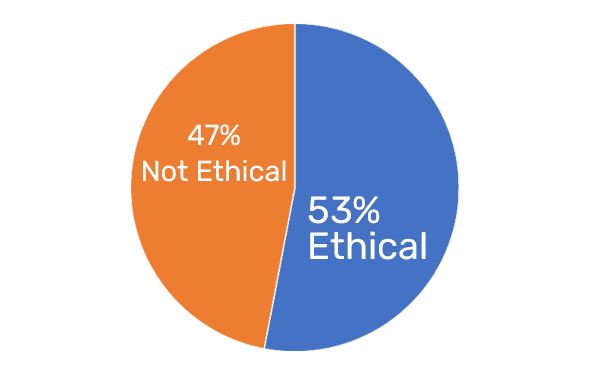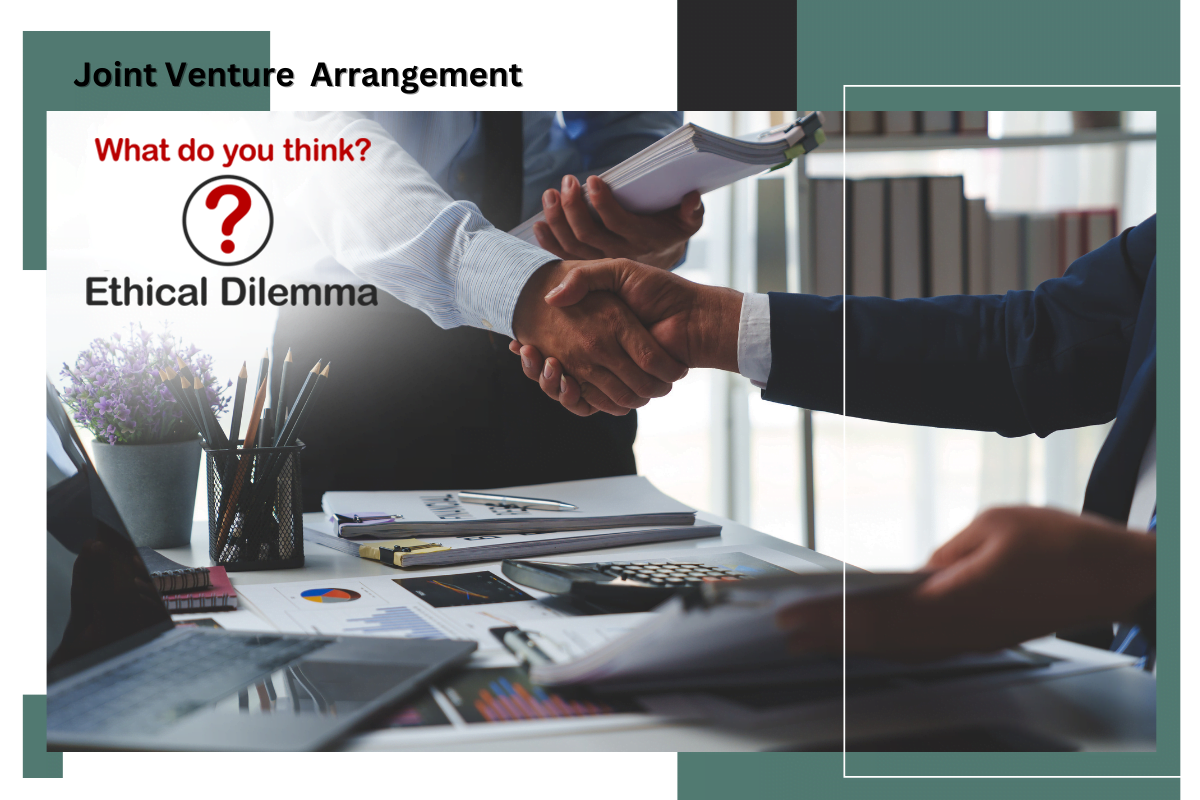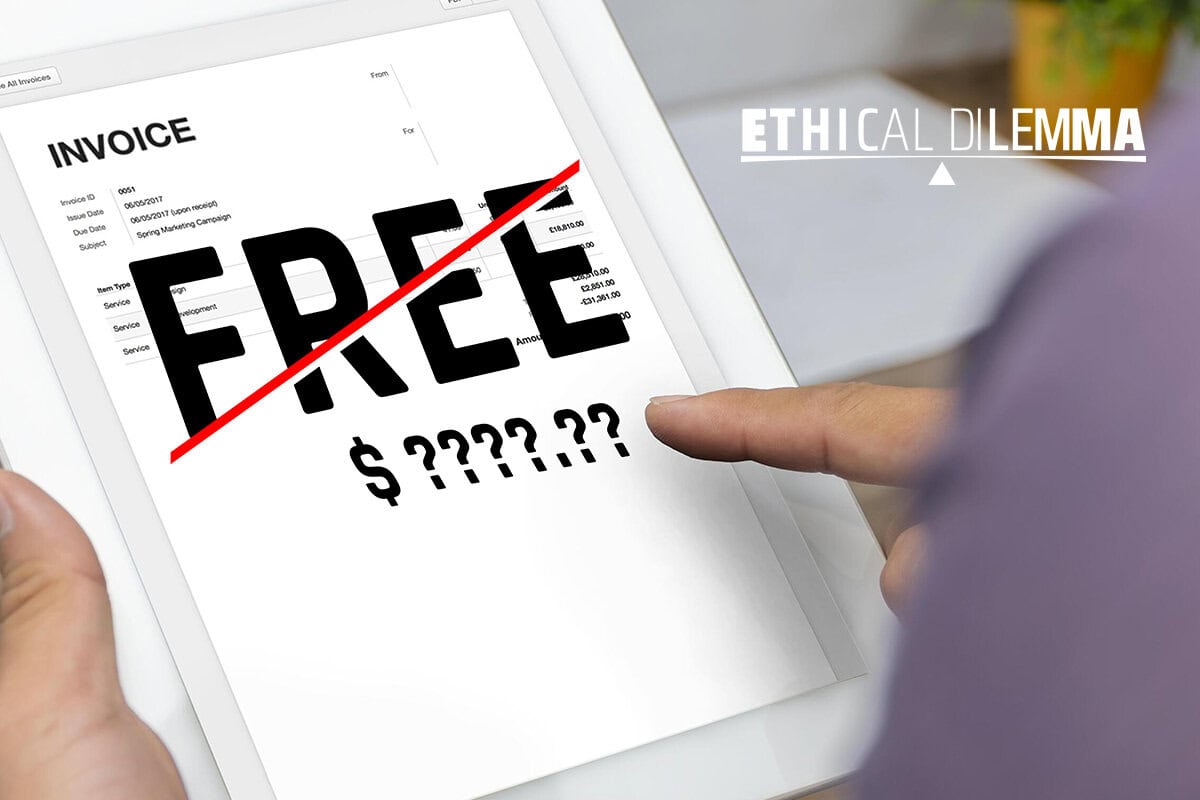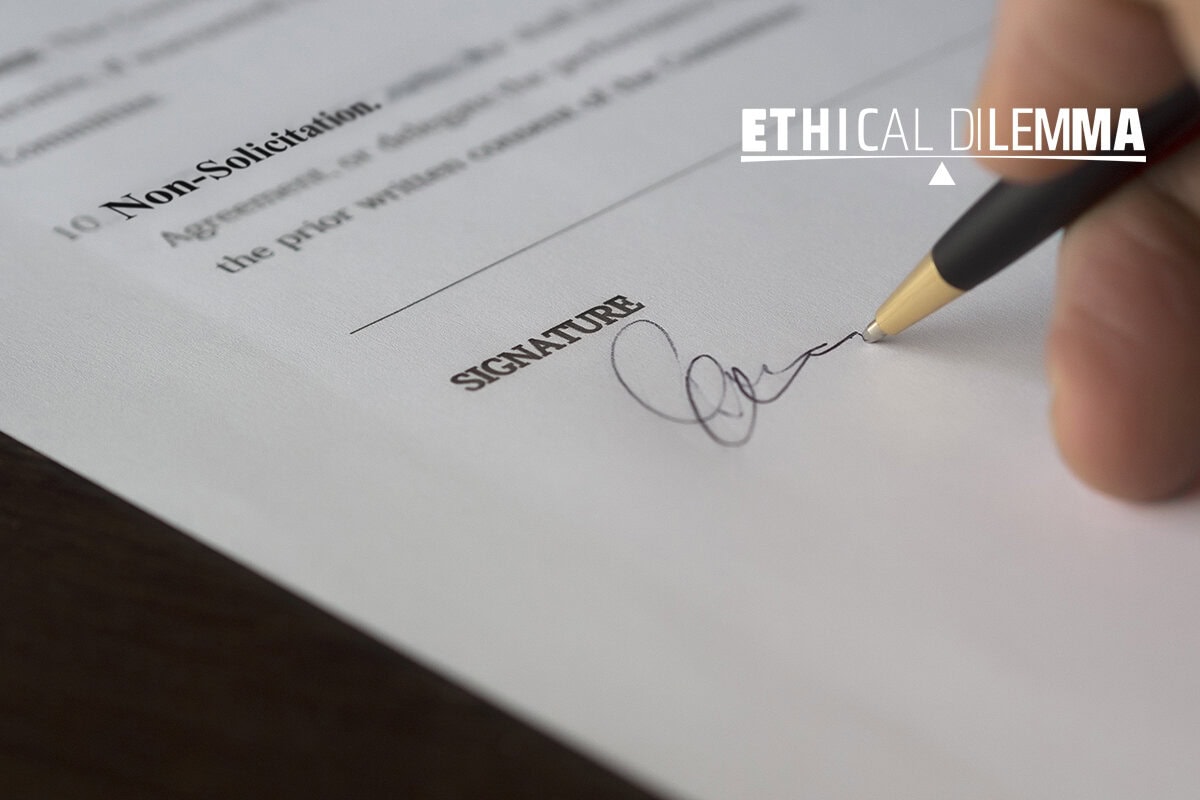This is the February 2024 edition of our monthly series of Ethics case studies titled What Do You Think? This series is comprised of case studies from NSPE archives, involving both real and hypothetical matters submitted by engineers, public officials and members of the public.
Your peers and the NSPE Board of Ethical Review have reviewed the facts of the case as shown below. And, here are the results.
Your opinion has been registered for the February 2024 edition of our monthly series of Ethics case studies titled What Do You Think?
Your vote is recorded as:

Want to know how your peers voted? We’ll send you an email with the poll results on
February 27.
Your opinion has been registered for the February 2024 edition of our monthly series of Ethics case studies titled What Do You Think?
Your vote is recorded as:

Want to know how your peers voted? We’ll send you an email with the poll results on
February 27.
A Review of the Facts
Engineer Able, on behalf of the firm of which he is a principal, submitted a statement of qualifications to a governmental agency for a project. In due course he was notified that his firm was on the “short list” for consideration along with several other firms, but it was indicated to him that his firm did not appear to have qualifications in some specialized aspects of the requirements, and that it might be advisable for the firm to consider a joint venture with another firm with such capabilities. Engineer Able thereupon contacted Engineer Baker, a principal of a firm with the background required for the specialized requirements, and inquired if the Baker firm would be interested in a joint venture if Able was awarded the job. The Baker firm responded in the affirmative.
Thereafter, Engineer Carlson, a principal in a firm which was also on the “short list,” contacted Engineer Baker and indicated the same requirement for a joint venture for specialized services, and also asked if the Baker firm would be willing to engage in a joint venture if the Carlson firm was selected for the assignment. Baker also responded in the affirmative to Carlson but did not notify Able of his response to Carlson.
What Do You Think?
Is it ethical for Engineer Baker to agree to participate in a joint venture arrangement with more than one of the several since he did not make a full disclosure to all of the firms?
Here is the result of our survey of your peers:

Applicable NSPE Code References:
III.1.
Engineers shall be guided in all their relations by the highest standards of honesty and integrity, andII.4
Engineers shall act for each employer or client as faithful agents or trustees.IV.A
Engineers shall disclose all known or potential conflicts of interest that could influence or appear to influence their judgment or the quality of their services.
Discussion
As is often the case in a particularized set of facts, the code does not specifically address the question, but we have the latitude to read related sections of the code to apply within reasonable limits. On that basis, we believe that Code 8 on conflicts of interest and Code 1 on professional integrity are stated broadly enough to provide a basis for an opinion.
The thrust of Code 8 is to require full and complete disclosure of known or potential conflicts of interest, but it does not necessarily rule out such conflicts if they exist. If there was objection by any party, the ethical question would have to be determined under the pertinent facts of that case.
We do not have to reach that question in this case, however, because there is not a conflict of interest under the facts before us. The code does not define “conflict of interest,” nor do our previous cases provide a definitive statement of its intent or meaning. At the very least, however, as stated in Case 67-1, it means that “a professional person may not take action or make decisions which would divide his loyalties or interests from those of his employer or client.”
In this case there is no potential or actual division of loyalty as to either the Able or Carlson firm on the part of Baker. Assuming that Baker is willing to work out a joint venture agreement with either firm which might secure the contract his loyalty would be centered only with the one selected firm. As a joint venturer, in fact, he would be a party to a single legal entity (the joint venture) for the one contract.
Technically, the disclosure requirement of Code 8 would not mandate that Baker advise Able of the contact from Carlson or advise Carlson that he had talked to Able because at this point Baker does not have a “client,” as such.
However, the requirement of Code 1 for highest standards of integrity makes it ethically necessary for Baker to contact both of the firms and advise each that he had indicated his willingness to participate in a joint venture with either. In this connection we consider the agreement of Baker to work with Able constitutes a relationship of trust which should not be diluted by establishing a similar and possibly competitive relationship with Carlson unless disclosure is made to all concerned.
The Ethical Review Board’s Conclusion

It is unethical for Engineer Baker to agree to participate in a joint venture agreement with more than one of several firms being considered for an engineering engagement since he did not make a disclosure to all of the firms.
BOARD OF ETHICAL REVIEW
Louis A. Bacon, P.E. F. Wendell Beard, P.E. James G. Johnstone, P.E. Robert H. Perrine, P.E. Marvin M. Specter, P.E.-L.S. L.W. Sprandel, P.E. Robert R. Evans, P.E., chairman
Note – In regard to the question of application of the Code to corporations vis-a-vis real persons, business form or type should not negate nor influence conformance of individuals to the Code. The Code deals with professional services, which services must be performed by real persons. Real persons in turn establish and implement policies within business structures. The Code is clearly written to apply to the Engineer and it is incumbent on a member of NSPE to endeavor to live up to its provisions. This applies to all pertinent sections of the Code. This opinion is based on data submitted to the Board of Ethical Review and does not necessarily represent all of the pertinent facts when applied to a specific case. This opinion is for educational purposes only and should not be construed as expressing any opinion on the ethics of specific individuals. This opinion may be reprinted without further permission, provided that this statement is included before or after the text of the case.









It would be different (and I believe allowable) if it were a Prime / Sub-Consultant relationship, but not in a JV. As a common courtesy, it’s been my experience that even most subs would indicate that they were “non-exclusive”.
Whenever there is a conflict of interest presented by working for two different entities, the conflict must be fully disclosed and consent must be given by the two entities before working for both is permitted.
The firm seeking the JV should indicate if they require an “exclusive” contract so there can be no misunderstanding.
If, as the facts do not indicate otherwise, Baker is merely waiting in the wings for potential work that may or may actually materialize, then I see no issue. There’s nothing in the story to indicate any more involvement by Baker other than indicate his willingness to each.
Able’s and Carson’s proposals neither required nor requested exclusivity — unlike a marriage proposal — so I see no issue. Furthering the analogy, all Baker said was he was willing to go to prom with either one if actually asked. And there’s no assurance either will.
Finally, given that Able, Baker and Carlson all seem aware of each other, these circumstances are probably familiar. Conforming to their local, common customs of being competitors and partners, along with preserving their reputations, probably does more to govern their behaviors than the hand-wringing of some some non-involved ethical puritans. Baker informing Able and Carlson may be a nicety, but it is not a necessity.
Specialty firms always seem to be in demand for gov’t contracts. While there was a gentleman’s agreement to support, there were no contracts placed until the requesting firm was to be selected. Experience has shown that many of these firms will be asked to support if the requestor wins and the expectation of exclusivity in the bidding stage is not warranted, even if no disclosures are made. The supporting firm will bring the same qualifications to the winning bidder, so the win will be based on that firms quals supplemented by the specialty firm.
The presentation made it sound like inquiries were made, NOT that contracts were signed AND that only one firm would receive the contract. So, there can’t be a conflict of interest once the contract is awarded. Size of the Baker isn’t clear, but I assumed that they were large enough that separate teams would do the prep work with Able versus the prep work with Carlson. This would potentially allow Baker to have 2 ONGOING contracts with each competing firm. This is also common. No facts were given in the example of overlap or not, so to assume mandatory overlap, thus creating a conflict isn’t prudent. The full facts, not a subset, need to be given, or there needs to be a “I need more information” answer choice.
Dave Bonin is exactly right.
There are no contracts or retainers in place. Only two (presumably confidential) “yes, I’m willing to work with you” statements. Further, the contract will be awarded to either Able or Carlson so there’s no conflict. If Baker were to disclose to Able that he’s also willing to work with Carlson, as Noon Pi contends he must, then Able will know that Carlson is bidding on the contract and is a competitor. Is it ethical to pass along that information?
I have worked where there is only one supplier of particular equipment or skill sets for a particular requested bid. At that point, all those bidding the contract are either going to use the one contractor who can provide the requirements, or they will have to develop the skills in-house to cover the bid requirements. There is a LOT of missing information, but I for one find no reason for Baker to disclose anything of their conversations with both clients that have contacted them.
I 100% agree with Dave Bonin’s take on this. Nothing yet exists to be a conflict of interest and, if it’s like most communities, everyone knows everyone else.
One issue not mentioned in the comments above is that almost certainly Baker will have to provide at least the credentials of Baker to the entity making the selection and may participate in a presentation to them. This raises the possibility that Baker may have a preference, and may tailor these materials or presentation to favor Able or Carlson. Also, the two principals may request different materials, presentation methods, or personnel from Baker. It would probably not be ethical to disclose those requests to the other, but the fact of the accepted invitation definitely should be disclosed.
I agree with “not enough information given”. It appears that both Able and Carlson just asked “Are you (Baker) willing to work with us?”, with no detailed discussion of scope or price, and no contracts signed. As long as Baker is doing identical work for the same price for both Able and Carlson, I see no problem. If they had different scope of work, and consequently a different price, again no problem. The biggest problem would be Baker doing similar work for a different price, or dissimilar work for the same price. In that situation, Baker might well have an ethical problem.
I don’t see this as conflict of interest because no contracts have been awarded. The speciality engineering services were needed by both bidding firms. Both contacted the best firm if they were awarded the contract for the joint venture.
I do not agree with the not “ethical decision.” I believe the judgment would not hold up at all. If there were an agreement, then that would be a different story.
I also agree with Dave Bonin’s comments. This is only in the proposal stage. Since Baker has a specialty, it’s more than likely other competitors would also be trying to use Baker in their proposal. If this is a govt contract for professional services I would think the full list of proposers including JV’s and sub-consultants would be disclosed to all proposers.